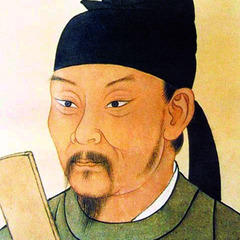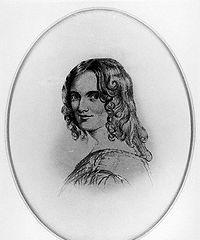Samuel Taylor Coleridge Quotes - Page 4
The principle of the Gothic architecture is infinity made imaginable.
Samuel Taylor Coleridge (1835). “Specimens of the Table Talk of the Late Samuel Taylor Coleridge: In Two Volumes”, p.199
And the Devil did grin, for his darling sin is pride that apes humility.
'The Devil's Thoughts' (1799)
Anima Poetae, ed. E. H. Coleridge (1895)
Samuel Taylor Coleridge (2015). “The Complete Works of Samuel Taylor Coleridge: Poetry, Plays, Literary Essays, Lectures, Autobiography and Letters (Classic Illustrated Edition): The Entire Opus of the English poet, literary critic and philosopher, including The Rime of the Ancient Mariner, Kubla Khan, Christabel, Lyrical Ballads, Conversation Poems and Biographia Literaria”, p.1825, e-artnow
Samuel Taylor Coleridge (1908). “Lectures and Notes on Shakespeare and Other English Poets”
Samuel Taylor Coleridge (1880). “Miscellanies, æsthetic and literary: to which is added The theory of life, collected and arranged by T. Ashe”
Samuel Taylor Coleridge, Henry Nelson Coleridge, John McVickar (1854). “Coleridge's Aids to reflection: with the author's last corrections”, p.2
'The Three Graves' (1798) pt. 4, st. 12
Alas! they had been friends in youth; but whispering tongues can poison truth.
'Christabel' pt. 2 (1800) (l. 408)
Samuel Taylor Coleridge (2013). “Delphi Complete Works of Samuel Taylor Coleridge (Illustrated)”, p.3497, Delphi Classics
Samuel Taylor Coleridge (1835). “Specimens of the Table Talk of the Late Samuel Taylor Coleridge: In Two Volumes”, p.190
Samuel Taylor Coleridge, May Byron, William Hazlitt, James Gillman (2015). “Samuel Taylor Coleridge: The Man Behind The Lyrics (Illustrated Edition): Autobiographical Works (Memoirs, Complete Letters, Literary Introspection, Thoughts and Notes on Poetry); Including Extensive Biographies and Studies on S. T. Coleridge”, p.362, e-artnow
Genius of the highest kind implies an unusual intensity of the modifying power.
Samuel Taylor Coleridge, William Greenough Thayer Shedd (1854). “The Complete Works of Samuel Taylor Coleridge: With an Introductory Essay Upon His Philosophical and Theological Opinions”, p.446
Samuel Taylor Coleridge (2015). “The Complete Works of Samuel Taylor Coleridge: Poetry, Plays, Literary Essays, Lectures, Autobiography and Letters (Classic Illustrated Edition): The Entire Opus of the English poet, literary critic and philosopher, including The Rime of the Ancient Mariner, Kubla Khan, Christabel, Lyrical Ballads, Conversation Poems and Biographia Literaria”, p.86, e-artnow
Poetry gives most pleasure when only generally and not perfectly understood.
Samuel Taylor Coleridge (2015). “The Complete Works of Samuel Taylor Coleridge: Poetry, Plays, Literary Essays, Lectures, Autobiography and Letters (Classic Illustrated Edition): The Entire Opus of the English poet, literary critic and philosopher, including The Rime of the Ancient Mariner, Kubla Khan, Christabel, Lyrical Ballads, Conversation Poems and Biographia Literaria”, p.1606, e-artnow
Samuel Taylor Coleridge (1839). “Aids to reflection in the formation of a manly character on the several grounds of prudence, morality and religion”, p.72
This world has angels all too few, and heaven is overflowing.
Samuel Taylor Coleridge (1854). “The complete works of Samuel Taylor Coleridge: With an introductory essay upon his philosophical and theological opinions”, p.147
In many ways doth the full heart reveal The presence of the love it would conceal.
Samuel Taylor Coleridge (1854). “The complete works of Samuel Taylor Coleridge: With an introductory essay upon his philosophical and theological opinions”, p.269
Samuel Taylor Coleridge (1840). “The Works of Samuel Taylor Coleridge, Prose and Verse: Complete in One Volume”, p.223
No man was ever yet a great poet, without being at the same time a profound philosopher.
Biographia Literaria ch. 15 (1817)







